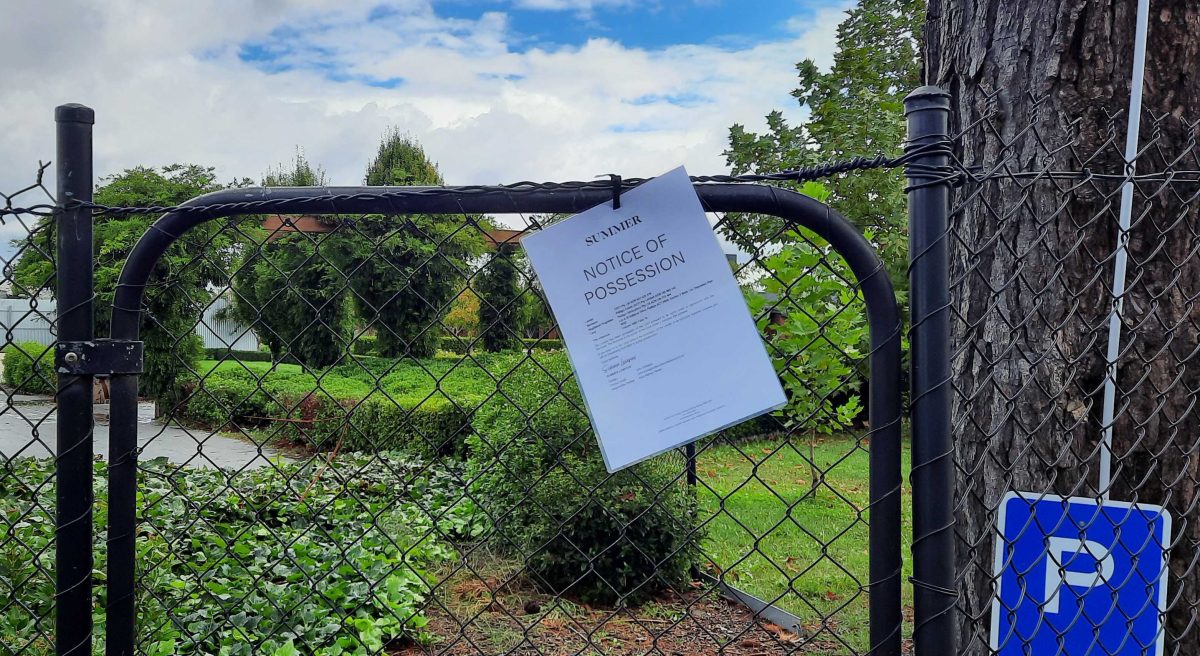
Pialligo Estate has been a high-profile ACT business casualty. Photo: Ian Bushnell.
Currently, our local economy is going through the effects of what some call ‘financial long-COVID’ on businesses. We are seeing too many businesses closing their doors and/or going into insolvency, liquidation or administration.
There are plenty of bad and sad impacts from these events. The impacts are on workers, suppliers, customers, shareholders – and let’s never forget the owners and the owners’ families and friends.
There is also the Australian Taxation Office (ATO), which is always owed tax of some sort, whether it be GST, PAYG, company tax or some other tax from the myriad of taxes that businesses have to collect and pay.
Who gets first dibs on any funds left over from the closure?
The first port of call will be the insolvency practitioners. They will be paid any costs associated with selling equipment and other assets of the now ex-business and they will be paid their fees.
Next will be the workers – and rightfully so. They have toiled for the business and now find they are owed unpaid wages as well as accrued leave and other entitlements. There is a government safety net for employees – the Fair Entitlement Guarantee (FEG), which has been effective for workers still left out of pocket.
Next in line are secured creditors such as those registered with the personal properties security register (PPSR); then come unsecured creditors, which include the ATO, contractors, customers, suppliers and others.
After that comes the shareholders. The owners of the business will come last as we all understand, but never forget the suffering for these people and their families, especially those insolvent through no fault of their own but due to the long-term impacts of COVID on their cash reserves and/or the predatory behaviour of the biggest landlords who all lack any type of true ethics.
The process of insolvency is complicated enough but can get more complicated when we take into account mechanisms like family trusts, mortgages, shares and various esoteric and exotic financial arrangements.
My issue is that contractors aren’t included with the workers. The great majority of contractors are sole traders or employ only a few others. They are human beings with families – the same as the worker. Perhaps we can have them included in the FEG?
The rules would have to be tight and probably complicated to keep out the dodgy types (who are always in the minority yet always in existence). But there is no doubt in my mind that contractors should be next in line after the employees. These are family people. They did the work they were contracted to do. They earned the money. They need it to live.
If contractors are not paid then that will put them at risk of closing, and any employees they have at risk as well. There is a potential domino effect. Then, for example, a lot of people will end up not paying their tax and the ATO misses out on more money. Also, the domino effect will be on other customers and suppliers.
I spoke to Stephan Hathaway, the outgoing president of the Australian Independent Insolvency Practitioners (AIIP), to help inform this article. He said that the insolvency process is well overdue for a review. I agree.
Stephen also said, and stressed, that the situation with contractors is very complicated and difficult. But that shouldn’t stop a deep root and branch review of the insolvency payment process.
Hopefully, the ACT government will agree to push for the rights of contractors who are affected by these closures. They are their constituents and even though they are small business folk and normally in the ‘why would we care’ bucket, they pay tax and employ others.
The government has yet to pay for the gold-plated light rail, and affronting the self-employed isn’t a good way to do that.
Then there are the dodgy few – normally people who open and close businesses to dodge their debts; these are the so called ‘phoenix business operators’. They are a curse on society. All governments have tightened laws around these parasites and made life more difficult, but the issue of ‘Phoenix Firms’ could be included in any review of the insolvency process.
A review of the process of managing insolvency is needed for everyone’s benefit – not just a few.
Peter Strong was a Canberra business owner and CEO of the Council of Small Business Australia (COSBOA) for 11 years. He now consults on community economics.
Original Article published by Peter Strong on Riotact.


